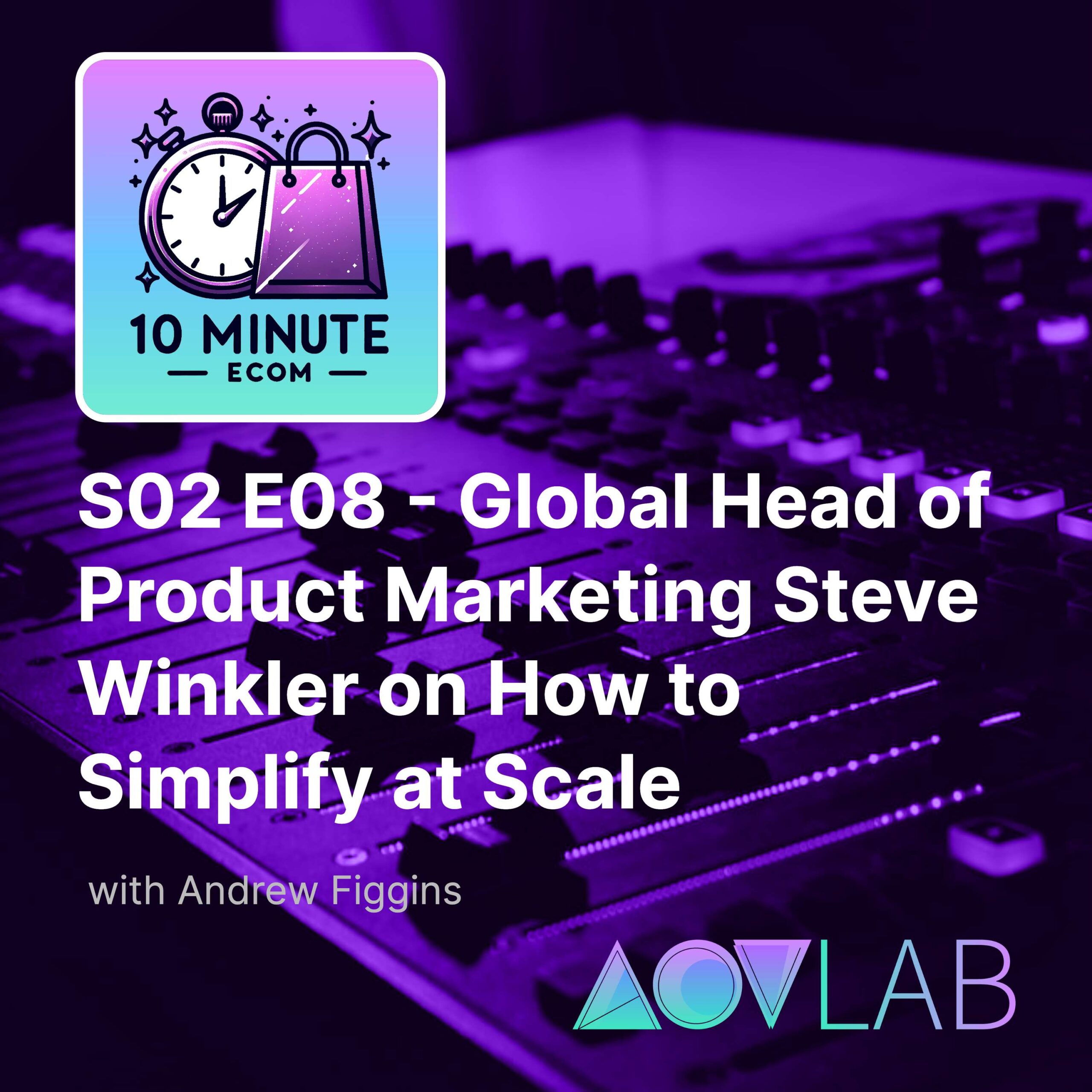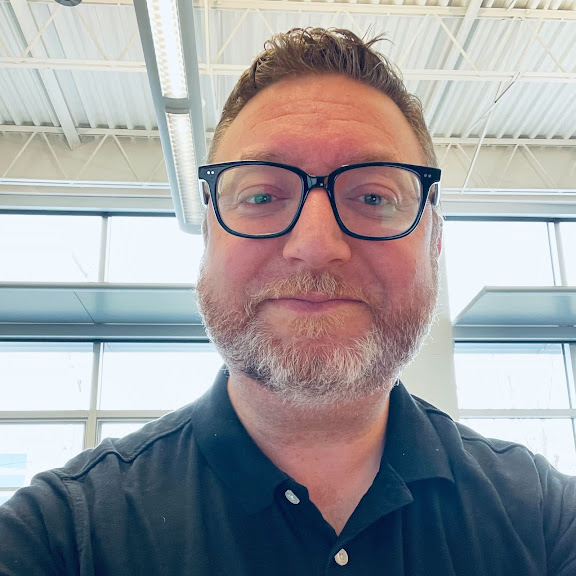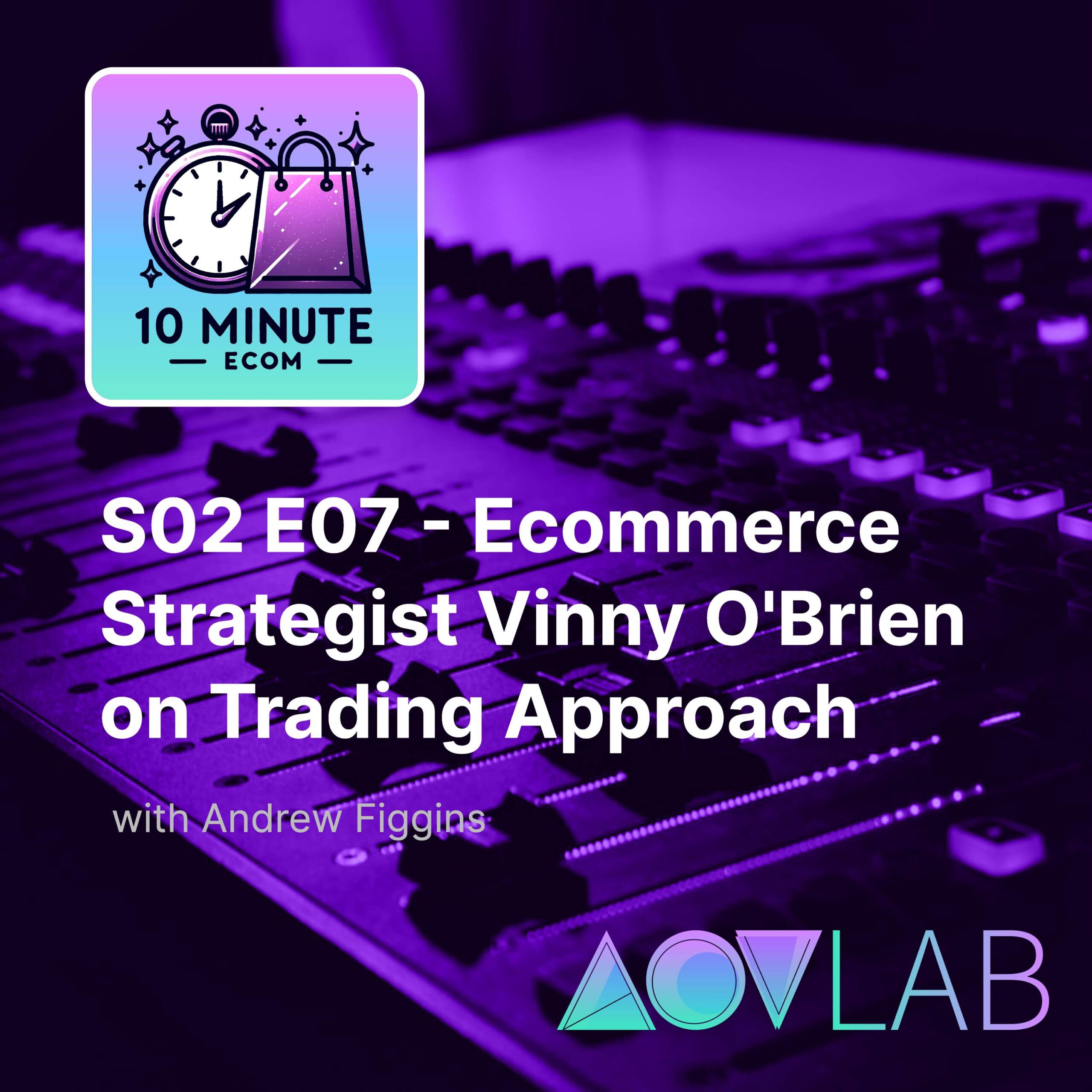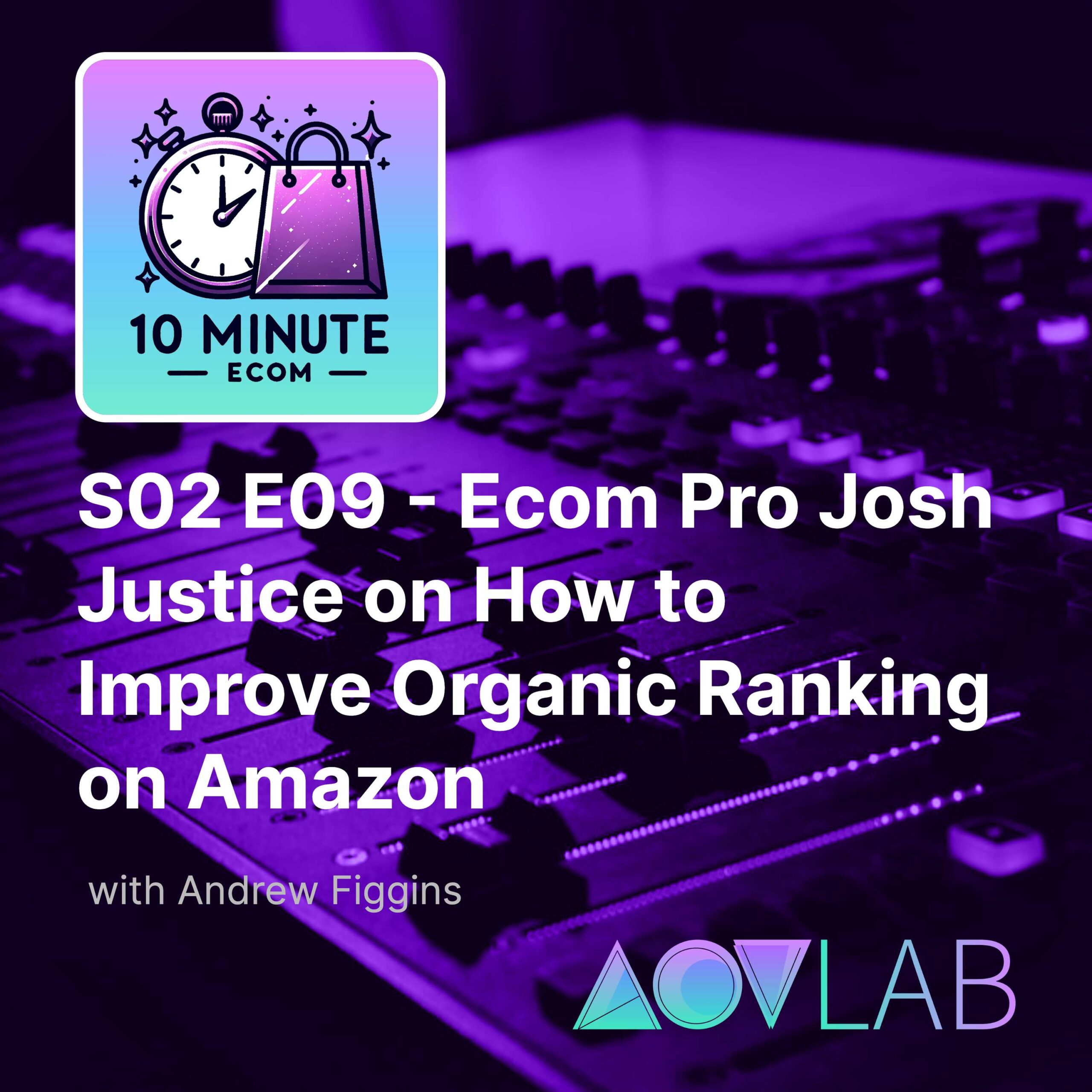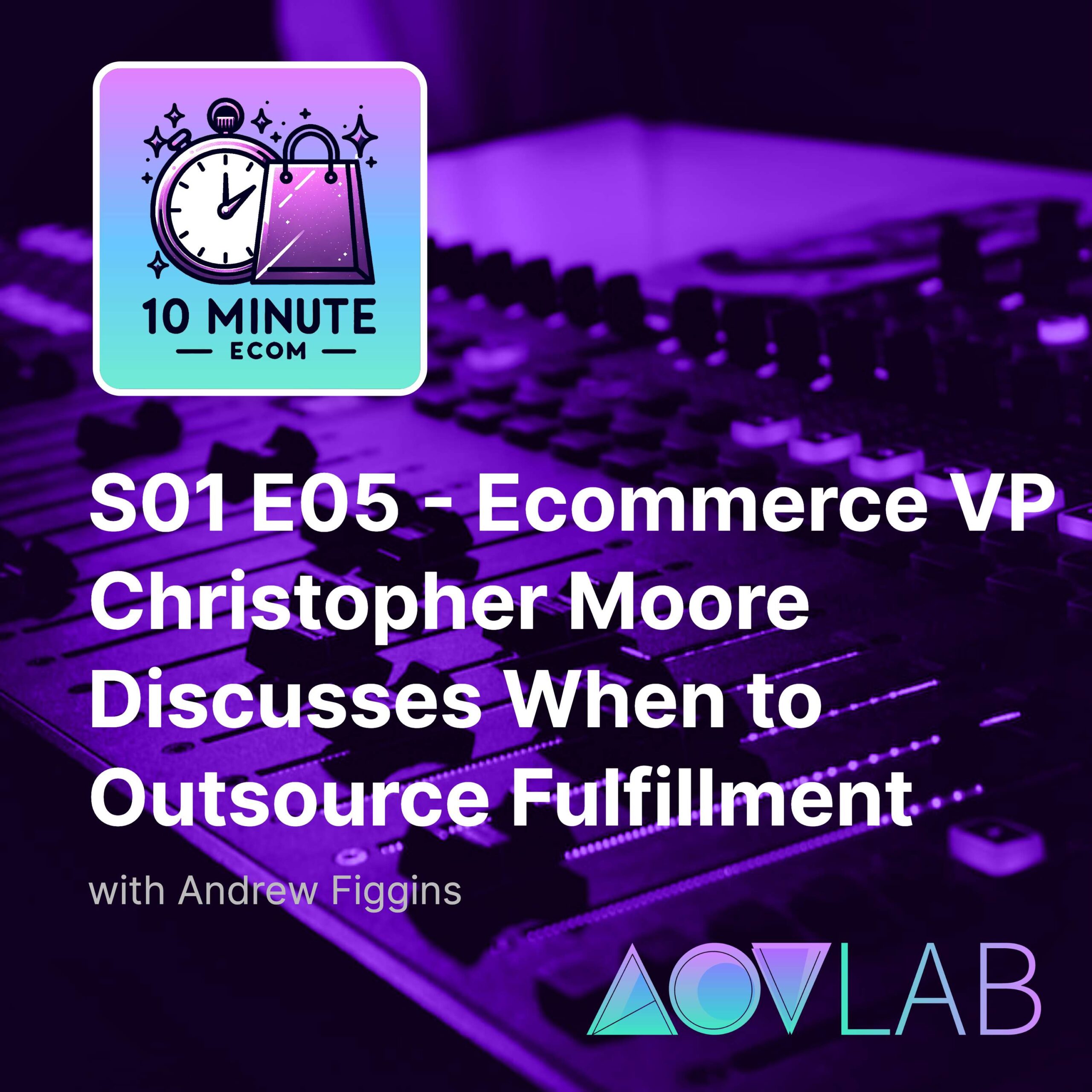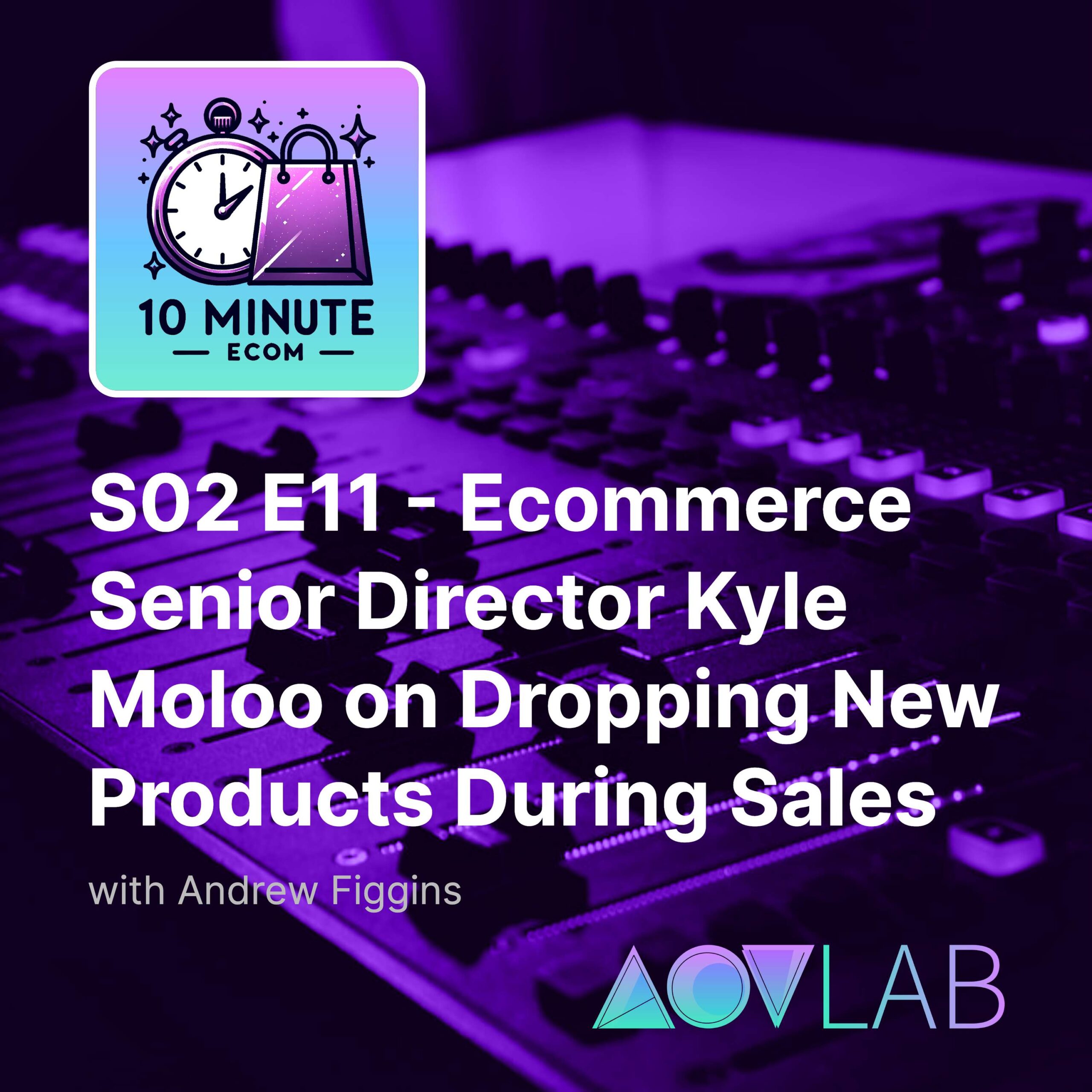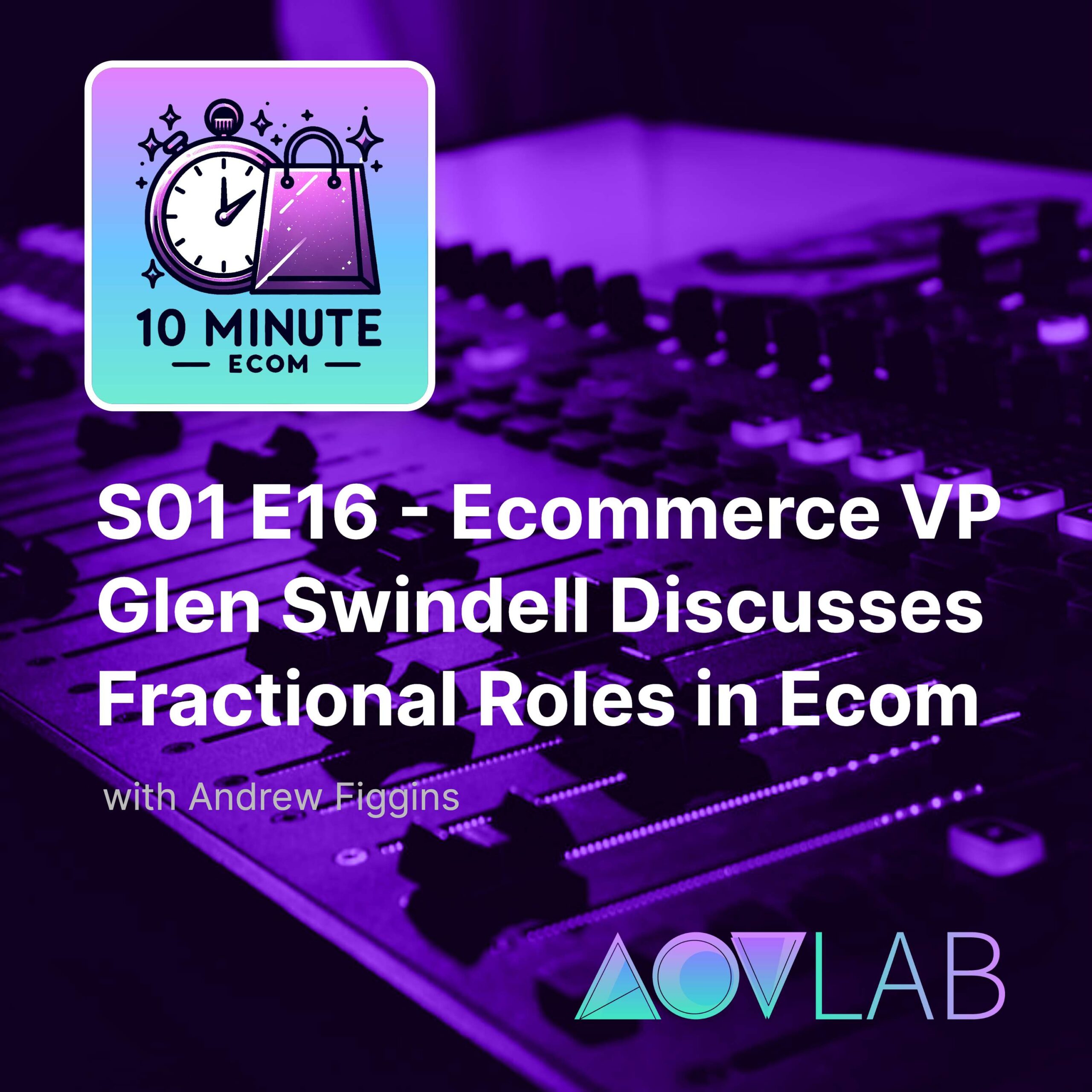View Full Transcript
Episode Transcript
[00:00:07] Speaker A: Hello, ecommerce fans, and welcome to ten minute ECom and AOV Lab podcast. Every episode, we break down a new and different tactic that can help you improve your ecommerce KPIs key performance indicators I'm your host, Andrew Figgins. I am an ecommerce professional. You may know me as the founder of AOV Lab, the former vp of product innovation at Scrubs and beyond, or is the former director of ecommerce technology at Rural King.
[00:00:34] Speaker B: Today I'm excited to be talking to Steve Winkler, an e commerce colleague that.
[00:00:38] Speaker A: Is doing very interesting work in ecommerce.
[00:00:41] Speaker C: Anyway, Steve, why did you come on.
[00:00:42] Speaker B: The show to share today with your e commerce colleagues?
[00:00:46] Speaker C: Hi, I'm Steve Winkler, a recent alumnus of HP, and I'm based in Austin, Texas. One thing I've seen work in ecommerce is how simplification and standardization improve global customer experiences.
[00:00:59] Speaker B: Thank you, Steve. After the ad, we'll get right into the chat.
[00:01:04] Speaker A: Today's episode of ten minute ecom is brought to you by shop AoV Lablab ecom. It is a brand new store with fun apparel and gear specifically for ecom professionals just like you and me. We've got high quality embroidered and printed t shirts, hoodies and hats that will spice up any Zoom call or in person meeting with your team. If you lead a team, these products make for awesome gifts to celebrate hitting a conversion rate or average order value milestone. If you work in ecommerce, I think you'll not only find some humor in these products, but also a sense of pride for what you do every day. Again, the site is shop Aov lablab.com. Head over right now and browse while you listen. Unless you're driving. In that case, pull over. You've got to see and share these products one last time. The website is shop aov lablab.com.
[00:01:59] Speaker B: And now back to the show.
Steve, welcome to the show. Thanks so much for being on ten minute Ecom today.
[00:02:07] Speaker C: Hi Andrew, yeah, thanks for having me on today.
So I think about things mechanically. I like processes and systems and as a marketer, an ecommerce professional on many things. But at the core, I'm a problem solver. And when I began my last role at HP in 2019, one of the challenges I faced was to scale up a project to create global ecommerce content for dozens of new products in the category of products my marketing team managed. It's part of a bigger effort to improve overall user experience on the partner ecommerce universe that HP sold to. And this was done at a global scale or the intent was to do this at a global scale, to obviously to reduce the burden and maybe some of the challenges that came up with creating that content more locally and really to envision what the problem, in part was. If you were a customer shopping some of our products, but really some of HP's products across different retailers, you would have a different user experience based on who created the content for that site. Obviously not great. It's not that any of the content was inherently bad, but if you are cross shopping multiple retailers and a very different experience, that isn't a great experience. So really, the effort that my team was a part of among many other teams, is to create this content at a global scale, at a standard that could be then modified locally, or I should say through a process, modified so it could be used locally.
[00:03:47] Speaker B: Now, when you say locally, Steve, are you meaning a specific language or dialect, or what about the localization piece came into play there?
[00:03:57] Speaker C: Yeah, no, and that's a great question. It's all of those things. So it's more than just translation. As we know, trans creation is often a better term because at the end of the day, putting it through a translator, we've seen that in ecommerce, where things come into English from other languages, and that's a bad user experience. So there are humans that work on that, and that happens below my team. So my team's role was to create content to a standard that made it easier for those groups to do their work. So, example, if you think about an image carousel, if you have an image with text in it, and you base that only on your knowledge of English and how many characters it would take to fill that space and create nice balance and a good design that could create problems downstream in languages that could use many more characters than we do, or fewer characters. So part of this bigger global effort was working with the other teams that were analyzing those type of situations and coming up with the standards that we could create content.
[00:05:02] Speaker B: I see. And you mentioned different customer needs depending on the retailer as well. I'm just curious. And also putting yourself in the shoes of those customers and those different stores that they were coming into, how did you guys go about that? It sounds like you actually had some boots on the ground, so to speak, actually going into the stores. But how did you seek to really learn and identify what those customer needs were and how they were different in each place?
[00:05:29] Speaker C: Fortunately, when I began at HP in 2017, my first role was working directly with ecommerce partners. And there were things that were, I would say, somewhat universal in what we were able to see as issues across the partners, and one of them, again, was that issue of a consistent user experience.
And that was caused by a few things. One, often the people who were creating that content with the partner were not ecommerce professional and maybe weren't using all the right things in the right ways, but it was necessary for them to do so because there hadn't been a structured plan in place to do that type of work.
Next was, of course, the variables that come in on the different content management systems and different style guides that each of those retailers have. But even though those retailers do have different style guides and content management systems, there are certain things that are universal on product detail pages, things like product titles and image carousels and the key selling points, as well as all that rich content you can create below the folds which could be syndicated to that partner through other systems. So there were things that could be done. And my team's role in, my most recent role at HP was to create that content in a way so that all of those downstream people that were creating those text driven images had the right ingredients to do their work. And on the surface, that doesn't seem very complicated. But taking a page out of Stephen Covey's way of thinking, you begin with the end in mind. And additionally, my experience in e commerce and marketing, it all came together. So when I took over that team, I tried first dispel the concerns that were real about adding all these new, different work streams. But the reality was a lot of the building blocks were in place, the talent was there, the team is smart, they're motivated, and honestly, once we got through the first few iterations, there were a few bumps and scrapes and bruises along the way. But overall, we hit our targets. We were in a position where we couldn't fail. Not that we couldn't fail, we weren't allowed to fail. So in putting all this together, Andrew, we learned that there are things that had been managed in a very ad hoc way that were burdensome. As a result, looking for ways to simplify the processes that go into creating things was really the magic that made all this work. Without that type of thinking, I don't think we would have been able to achieve our goals.
[00:08:12] Speaker B: That makes sense. Steve, I wanted to ask you about some just. I have this picture in my head of it being very difficult to get some metrics back to the team. Putting in the standardification. I think I messed it up again, that word putting in the standardization and the simplification.
Did you have some specific metrics that you were looking at to say over time we're seeing some improvements or we need to make some additional adjustments. What were some of the numbers that you all were concerned with and paying attention to?
[00:08:45] Speaker C: Sure. So at the end of the day, conversion rate is what drives everything, at least from the perspective and the viewpoint we had. So because we were a step removed, because we were the first order of content, we relied on other, relied on other teams to be able to collect that information from both the internal side as well as from partner ecommerce data. So of course, if we were affecting conversion rate in a positive way, that was a major indicator that we were going in the right direction. But for the real responsibility of my team, we had three things that we needed to adhere to to achieve our goals, which were timeliness, quality and consistency. And quality, right. That's a weird one because that's rather subjective. But from a qualitative perspective, we were able to look at this more objectively and say, okay, these things are there, we've done good quality work. And that also comes down to receiving less negative feedback from your stakeholders. You're always going to get feedback. You always hope it's positive, but it never is always positive. But it's how we process that feedback and have those conversations with our stakeholders, not just downstream that relied on that content, but all the people that we rely on upstream. So if you think about it, our role in product and NPI marketing was traditionally somewhat down the food chain of the product marketing process or the product development process. And one of the things that over time, we got very good at was inserting ourselves earlier into those conversations so that we had more of an understanding, a deeper tie to perhaps some of the facts and data that might have come later in the process. We were able to use both experience, intuition and a little bit of luck to also just improve some of those timelines, which also made a big difference.
As simple as it sounds, starting your work earlier, you can get it done earlier, is not necessarily the norm. Right? So I think in this whole simplification process, we were always looking for ways to say that might not be right or just because it's always been done that way. Is that the best way of doing it? So we had a lot of conversations and we went back and forth on a number of things. And in order to be able to simplify, you also need to be somewhat judicious and say, is that really necessary? Give you an example, I think about certain videos that we created.
We used agencies for them and they were wonderful at doing their work. But it was only when we said, ah.
By creating a new video each time, where the net result is they're ultimately the same. Doesn't seem very practical yet. These are all tad driven, they're animated and they're all very similar. What are the common elements in doing things like that? Those are the different ways of thinking. Right. Without spilling all the beans. That's really the kind of the thinking that went in behind it. Right. What is unnecessarily complex and how can we simplify it? So coming back to that whole mechanical way of thinking, that's pretty much the story of my life.
[00:12:03] Speaker B: Well, I like how you put it. It sounds like you were able to come in and your team was able to ask that most important question, which is why? Why are we doing it this way? It's been done this way for a long time before, but that's something that has to be constantly recalibrated. Right. And evaluated. And I think that's such a huge part of product marketing, is that ability to not only look forward and be in the present, but also to look back at what was done before, but also realize that's not necessarily the way that it has to carry forward.
Were there some elements that you all decided to carry forward? Maybe some things that had been in place that really were working?
[00:12:43] Speaker C: Oh, absolutely. Listen, everything in life is iterative, and business is no different. The great thing about big companies is that they're often like slow moving ships. Right. There's very little you can do to change the overall direction, or you need to just anticipate that turn many miles ahead of where it's going to happen. And I think even in the work that we did, it was more right than wrong. Right. I have huge respect for all of my predecessors because in the worlds that they worked in, they all did phenomenal jobs. Some of the things that I think were beneficial to our work, that were there already, that we were able to, I would say, further enhance or maybe benefit more of our work from were the systems that already created standardization. Because at the end of the day, a lot of this relies on structured data. So those databases already existed, but in using those existing databases, we still had ongoing conversations about which containers were the right ones, or how to link certain data from certain containers to certain things. Yeah, it's an ongoing process, but more or less the framework is usually there, and hopefully it's there in an established company. Huge benefit of working at a company that's been around for 80 plus years is there are a lot of great things that are already in place.
[00:14:01] Speaker B: Absolutely. I wanted to ask you, Steve, HP, obviously huge company, do you think in your next role, are you looking for another big company or what's next, do you think for you?
[00:14:13] Speaker C: Yeah, I keep an open mind. Obviously, it's an exciting time, new start of the year, and opportunities are everywhere. My passions have been in a number of different areas, in commerce, in content. I've had my hand in brand and had the pleasure of being in a position to direct creatives. I'm a pretty fluid marketer and I think what's important to me and where I go next are the goals and the values of that company. One thing I really admire deeply about company like HP is it really lives its values and I think it's probably more rare than it is not, or for companies to really be like that. I think at the end of the day, I think there's an opportunity, I think there's a lot for all of us to look forward to in e commerce and marketing. And of course, AI has been the term that has, I would say, become part of every conversation over the last year. And I can tell you that just what I've experimented with in AI gives me a lot of hope and excitement, that we barely scratched the surface. In fact, what I think about, when I think about the way we talk about ecommerce, Andrew, is the way SEO was the buzzword. 20 plus years ago, everyone said SEO, but they didn't really understand it or mean it. I think we're in that era now with AI, is that it's talked about. I don't think anybody really understands it. And I think for the people that even experiment lightly and figure out how to apply this to their roles, the world would be their oyster. And I think, I can't tell you that I figured it all out, but in the little that I've had an opportunity to understand its capabilities and limitations, I'm excited.
[00:16:08] Speaker B: Excellent. I am too. Steve, it's amazing. I think just this week, or recently heard that the GPT store was about to open up. And that's super exciting. That's like in a brand new marketplace opening its doors for the first time. And I'm just curious to see what happens with that in the next twelve months. We may be looking at a billion dollar marketplace here, just coming out of.
[00:16:30] Speaker A: Nowhere, or seemingly coming out of nowhere.
[00:16:32] Speaker B: Even though people have been working on.
[00:16:34] Speaker C: AI for a while, I think there's a gold rush, in a way, happening again. And I've heard a story and I don't know if this is true or not, but the people who did the best during the gold rush were not the miners or the mine owners, but the people who sold the tools. So I think if the smart folks like you and I can get in there and create the right AI tools to drive ecommerce, we'll be okay.
[00:16:57] Speaker B: Agreed. Yeah, I'm trying to think of a pithy thing to say to that, but I'm still struggling with it.
Steve, I look forward to getting my pickaxe out and going west real soon.
[00:17:12] Speaker C: In terms of AI, awesome. And for me, I think the other thing I'd like to part with know I am in a transitionary state. It was a wonderful time working for HP for seven years and I'm exploring new opportunities. So if you or any of your listeners could use an experienced marketer that has a deep passion for creating great experiences for the teams he leads and the customers he serves, I would love to speak with those folks.
[00:17:42] Speaker B: Absolutely, Steve, and we would be happy to connect you. I know in the past a few folks that have listened to the episodes have reached out and said, hey, can I get an intro to Steve or Phil or Lori or so many people that have been on the show. We'll absolutely help make those connections and best of luck going forward. I think it's a pleasure to talk to you today and best of luck.
[00:18:03] Speaker C: Andrew, I hope this is the start of many. I look forward to talking to you again on and off the air. So thanks for having me and have a great day.
[00:18:11] Speaker B: Thanks, Steve. Well, we have hit that ten minute.
[00:18:14] Speaker A: Mark times two, so that's a wrap for today's episode. I want to again thank our guest Steve Winkler.
[00:18:20] Speaker B: If you have a moment, be sure.
[00:18:22] Speaker A: To subscribe like or follow the show on Apple Podcasts, Spotify, Amazon Music, Google Podcasts, or wherever it is that you listen.
As mentioned earlier in the episode, please head on over to shop Aovlab.com, our brand new store that helps to support this podcast. It is launching with nearly 100 products, so plenty to choose from. Our top seller so far is a shirt that simply says Ecom on it. I wear it around my extended family so I can point to it when my relatives ask me what I do.
I hope you enjoyed this episode of the show. Until next time, this is Andrew Figgins signing off and saying have a good one.
